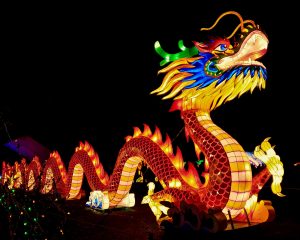Acupuncture
Using Acupuncture to Manage Autoimmune Diseases

Autoimmune diseases can prove to be intricate and seemingly unsolvable puzzles for many people. And statistics prove this to be true as millions worldwide are impacted by autoimmune diseases ranging from rheumatoid arthritis to lupus, Crohn’s disease, multiple sclerosis, irritable bowel disease, and even Parkinson’s disease. Conventional medicine can diagnose 100 different autoimmune conditions, however the treatments offered don’t completely resolve the issues associated with the disease and in extreme cases, no treatment is available at all. And yet, in the midst of all these medical challenges that autoimmune diseases present, acupuncture emerges as a promising ally, offering relief to those grappling with these often-complex health conditions. continue reading
Acupuncture for Orthopedic Pain

Orthopedic pain is a big deal for many Americans, and it comes in many different forms including knee, hip, shoulder, and other joint pain. Acupuncture has been proven an effective tool to deal with orthopedic pain…even Harvard Medical School thinks so. continue reading
When is Stress Actually to Blame?
 I feel like in the 20th century no one was talking about stress as an etiology for disease. Possibly I am guilty of generational egocentricity, having barely reached the drinking age by 2000. Thankfully, I had very few young friends discussing ailments and how they came about.
I feel like in the 20th century no one was talking about stress as an etiology for disease. Possibly I am guilty of generational egocentricity, having barely reached the drinking age by 2000. Thankfully, I had very few young friends discussing ailments and how they came about.
Still, I think it is more referenced, even over-diagnosed nowadays, especially by western doctors any time they cannot explain a symptom or its etiology, shrugging shoulders and throwing their arms up, citing the most probable suspect. “Might just be stress,” they say, which for its listener might feel an implication that their complaint is a fabrication of the mind, if not something that can only be resolved or improved once everything in life is good, or they achieve spiritual enlightenment, neither of which are in the cards for most of us this go around.
While I’m all for patients having agency over their own health, things happen that are out of our control—an accident, post-viral symptoms, genetic predispositions, or just life—when it helps to have a knowledgeable clinician to provide valuable insight and hopefully effective treatment.
In Chinese Medicine stress is said to have a drying effect on the body. This is why when people “stress eat” they crave “damp-causing foods,” such as cheese, bread, and sugar.
Unfortunately, such foods do not generate healthy fluids, nor is stress-induced dryness the kind that will drain pathogenic dampness. Instead, the drying effect of stress refers to the depletion of mucosal organ fluids, beneficial stomach fluids (anyone get acid reflux or diarrhea when over-stressed?), and/or those that lubricate our orifices, gyri and sulci of the brain. Although hydration is advisable, drinking water cannot replace these fluids.
In early stages or mild cases, the best way I know to restore such fluids is through rest, sleep, and the consumption of eggs, bone broths, or red meats. For the rest of us herbal medicine is necessary. Herbs such as ginseng or licorice for the gut, puerariae root for the head and neck, ophiopogonis for the intestines, atractylodes for the intestines, trichosanthis for the orifices, or rehmanniae for the brain and blood. Always consult a (real) herbalist before taking.
Although extensive periods of stress are never helpful, it is important clinically, to thoughtfully discern between when stress is, and when it is not the primary cause of a particular symptom. Almost everyone in modern society has at least moderate degrees of stress, yet everyone is walking around in enormously different stages of health or discomfort.
From our perspective, when stress directly brings up a symptom, it informs us that dryness is probably at its root of imbalance. The body couldn’t tolerate any further depletion of fluids. Then, and only then, is when stress is to blame—not to mention the fact that most disease is multi-factorial. Systemic dryness is likely only part of the picture, which is why many people “do all the right things”—exercise, meditation, good sleep hygiene—but still experience symptoms. Because it is almost never “just stress.”
Happy Lunar New Year!
 Happy Lunar New Year of the Yang Wood Dragon! Although I enjoy the psychological aspects of astrology very much, the forecasts and recommendations always land rather vague or obvious for me. I take them with the same grain of salt I do seven-day meteorological forecasts. For example, when Gemini is advised for the month to stop, rejuvenate, and take care of ourselves, I assign it about as much weight as I do when the News recommends I bring an umbrella next Tuesday.
Happy Lunar New Year of the Yang Wood Dragon! Although I enjoy the psychological aspects of astrology very much, the forecasts and recommendations always land rather vague or obvious for me. I take them with the same grain of salt I do seven-day meteorological forecasts. For example, when Gemini is advised for the month to stop, rejuvenate, and take care of ourselves, I assign it about as much weight as I do when the News recommends I bring an umbrella next Tuesday.
The dragon is the most revered animal sign in Chinese astrology, so much so that many Chinese families aim to procreate during these years. As an aside, I imagine this might lay groundwork for a child that feels intense pressure to succeed, between the apparently already competitive nature of their parents compounded by the overcrowded classrooms and job markets they likely find themselves in. Nevertheless, the dragon is considered powerful and brilliant, fortunate, and successful.
The wood element is a strong one as well, typically motivated, proactive, angry, and determined. It corresponds with the liver and gallbladder channels, the former of which is yin and responsible for storing our blood and nutrients and sending them to the central nervous system. The latter of which runs up the entire sides of our bodies and acts as “the pivot” between our yin (organ level) systems and yang (immunological and neurological) systems. Neither of these channels, to my understanding, have any direct connection to their biomedical organs of the same name.
Wood is a creative element, which means a year of the wood dragon is a good one to succeed in creative projects by way hard work. But honestly, what year isn’t?
I will share with you from https://www.thechinesezodiac.org/year-of-the-dragon/ that some of the most promising sectors for business this year are in solar energy, cybersecurity, and AI. In my opinion, this does bear systemic logic. We can think of the liver as acting as cybersecurity for our healthy body fluids, and the gallbladder as parallel to the pivot created by solar energy between the sun and our devices. Pretty cool.
Supposedly lucky numbers for this year are 8, 14, and 21, and the auspicious color is emerald green. So, if you have to choose a date for something like a job interview, a performance, or an IVF transfer, maybe you’ll choose the 8th, 14th, or 21st, and wear an emerald green piece of clothing or accessory for it. Although, an emerald green suit on a job interview is likely inadvisable, unless it’s an audition for Broadway or to act as a Disney park character.
Does Acupuncture Treat Heart Disease?

According to the Centers for Disease Control and Prevention, heart disease is the leading cause of death for men and women in the United States. And ethnicity doesn’t matter, as people of all racial and ethnic groups are impacted. With such serious statistics, many might wonder what treatment options are available. Did you know that acupuncture can help with treating heart disease, as well as many of its contributing factors? Read on to learn how. continue reading

